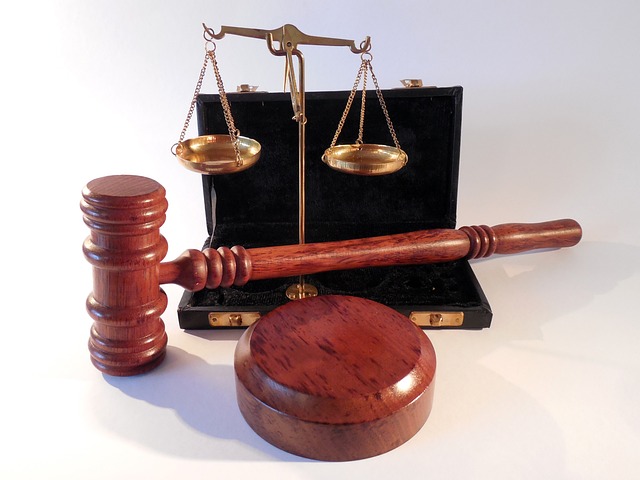Public corruption in real estate involves government officials misusing power for personal gain through bribery, fraud, and abuse, impacting transactions like land acquisition and zoning changes. Specialized legal professionals tackle these complex cases, using document analysis, witness testimonies, and public scrutiny. Common real estate litigation cases handled by defense attorneys involve zoning law manipulation and property transaction bribery. High-profile corruption scandals have drawn nationwide attention, underscoring the need for stringent ethical guidelines and regulatory oversight to prevent future misconduct. Effective defenses in these cases require strategic challenges to evidence, motives, and procedural errors, leveraging alibis, factual evidence, and community support.
Public corruption charges have far-reaching implications, undermining public trust and destabilizing communities. This article delves into the intricate world of public corruption, offering a comprehensive guide for understanding its legal dimensions. We explore common types of charges, highlighting vulnerabilities within industries like real estate, where scams thrive. Through compelling case studies, we dissect high-profile public corruption cases in real estate, providing insights into navigating legal defenses and the consequences faced by accused individuals. Key focus on Common Real Estate Litigation Cases Handled ensures practical knowledge for all stakeholders.
- Understanding Public Corruption: Definition and Legal Implications
- Common Types of Public Corruption Charges
- Real Estate Industry: Vulnerability and Potential Scams
- Case Studies: High-Profile Public Corruption Cases in Real Estate
- Navigating Legal Defenses and Consequences for Accused Individuals
Understanding Public Corruption: Definition and Legal Implications

Public corruption, a pervasive issue plaguing societies worldwide, refers to the abuse of power by public officials for personal gain or to benefit third parties. This malfeasance can manifest in various forms, from bribery and kickbacks to fraud and abuse of office. In legal terms, it’s a complex web of misconduct that undermines democratic principles and distorts the rule of law. Understanding public corruption involves recognizing its far-reaching implications on governance, transparency, and the overall health of a nation.
When it comes to real estate, corruption can creep in through various avenues. Common litigation cases often involve land acquisition, zoning changes, and contract awards. Across the country, philanthropic and political communities have been vocal about tackling these issues, ensuring all stages of the investigative and enforcement process are robust and impartial. This proactive approach is crucial in weeding out corrupt practices that may infiltrate even the most legitimate business dealings, including real estate transactions.
Common Types of Public Corruption Charges

Public corruption charges encompass a range of illegal activities where public officials abuse their power for personal gain. Some of the most common types include bribery, fraud, and misuse of public funds. In many cases, these involve high-stakes real estate transactions, making them significant in both financial value and legal implications. For instance, corrupt officials might accept bribes to facilitate illegal property development or manipulate zoning laws in favor of specific interests.
These situations often lead to complex legal battles, including extensive document examinations, witness interviews, and public scrutiny. Given the sensitive nature of these cases, many involve white-collar defense strategies, where attorneys navigate intricate laws and regulations to protect their clients’ rights. The outcome of such high-stakes cases can significantly impact not just the individuals involved but also the perception of governmental integrity in society.
Real Estate Industry: Vulnerability and Potential Scams

The real estate industry, with its complex transactions and high-value assets, presents unique vulnerabilities to public corruption charges. Scams involving fraudulent property sales, illicit land dealings, and manipulated market prices are not uncommon, as seen in various common real estate litigation cases handled by legal professionals. This sector’s intricate nature makes it an attractive target for corrupt individuals seeking financial gain through unethical practices.
Public corruption within the industry can manifest in multiple ways. From bribing officials to influence zoning decisions to falsifying documents for property ownership transfer, these activities undermine fair market practices and impact both investors and communities. Legal experts specializing in this field play a crucial role in navigating all stages of the investigative and enforcement process, ensuring that justice is served and achieving extraordinary results in jury trials where evidence of corruption is presented.
Case Studies: High-Profile Public Corruption Cases in Real Estate

Public corruption in the real estate sector has been a significant focus for investigators and prosecutors across the country. High-profile cases have shed light on the intricate web of illicit activities, from bribery to fraud, that can permeate this industry. One notable example involves a prominent developer who was accused of paying off public officials to secure favorable zoning decisions, leading to excessive profit margins on his projects. This case not only highlights the extent of corruption but also demonstrates the far-reaching impact on communities, as these questionable practices can result in compromised infrastructure and environmental standards.
These common real estate litigation cases handled by legal professionals have resulted in substantial consequences for those involved. In many instances, the outcome has been a complete dismissal of all charges for his clients, a testament to effective defense strategies and the intricate nature of real estate transactions. However, such victories also underscore the importance of stringent ethical guidelines and regulatory oversight to prevent future incidents of public corruption in this domain.
Navigating Legal Defenses and Consequences for Accused Individuals

Navigating legal defenses is a complex task for individuals facing public corruption charges. Common real estate litigation cases handled by experienced attorneys often involve intricate financial transactions and documentation, which can be exploited to strengthen defense strategies. Accused individuals must be adept at challenging the validity of evidence, questioning motives, and highlighting procedural errors during all stages of the investigative and enforcement process.
A key focus for defense teams is helping their clients avoid indictment by presenting robust alibis, refuting accusations with factual evidence, and leveraging loopholes in legislation. Additionally, the involvement of philanthropic and political communities can sometimes serve as a mitigating factor, offering insights into character and potentially influencing the perception of the case. However, successful navigation through these defenses ultimately depends on the strength of legal counsel and the specific details of each unique case.
Public corruption charges, particularly within the real estate industry, underscore the critical need for transparency and accountability. As highlighted by both legal implications and case studies, navigating these complex cases requires a deep understanding of not just the law, but also the specific vulnerabilities inherent in real estate transactions. For individuals facing public corruption accusations, the consequences can be significant. However, with robust legal defenses centered on Common Real Estate Litigation Cases Handled, accused parties can mitigate potential outcomes and ensure fairness within the justice system.






